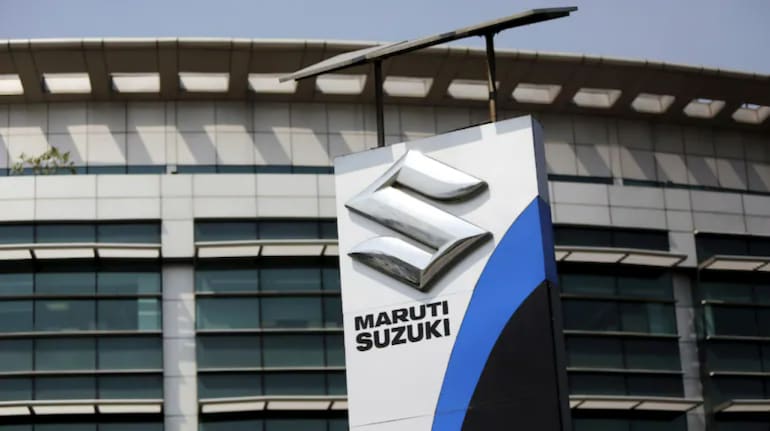



A small Japanese startup looking for relevance abroad, a stubborn political dynast desperate to leave his mark, and a nation in search of wheels that would not break down in the middle of the road, all came together 40 years ago to create a near-perfect product. The Maruti 800 was as much a car as it was a cultural icon, capturing the zeitgeist of a country yearning for change.
In 1983, the 24-year-old Kapil Dev won the cricket World Cup. Along with him a new generation of Indians of similar vintage and attitudes was beginning to make its presence felt. Nowhere was this more visible than the spontaneous and joyous embrace of the small car that rolled out of Maruti’s Gurgaon plant in December 1983. That year, the company sold just 70 assembled cars, but its aspirations were soaring. The target of selling 100,000 units by 1986 was achieved within days of its launch as customers rushed to book what was dubbed ‘the family car’, but whose appeal cut across age groups. In many ways it came to frame the yuppy lifestyle that would find its full flowering after the 1991 reforms.
Maruti's partner in that journey was an automobile lightweight that had been founded in 1909 by Michio Suzuki as Suzuki Loom Works in Hamamatsu, Shizuoka Prefecture of Japan, and had ventured into the motor-vehicle field with the launch of a 2-cycle auxiliary bicycle engine in 1952. Two years later it changed its name to Suzuki Motor Company, and in 1978, in a move that would have great significance for the future of India’s automobile industry, Osamu Suzuki was appointed as the company’s President. Just four years later, in 1982, it signed a basic agreement for the joint production of Suzuki cars with Maruti Udyog Ltd.
India’s bureaucracy of that era, notorious for stalling such ambitious plans, played ball because of the personal involvement of then Prime Minister Indira Gandhi’s younger son Sanjay Gandhi who had harboured hopes of building a car in India ever since 1971 when he went for an internship to Rolls Royce in the United Kingdom. A company by the name of Maruti Motors Ltd. was incorporated that year, but the idea lay dormant till 1980 when the Congress, fresh from its victory in the previous year’s general elections, revived the project. While Sanjay Gandhi died before his dream could be realised, there was no stopping the march of the new car project.
The India of the previous three decades since 1947 had been poorly served by outdated models of the Ambassador from Hindustan Motors and Fiat from Premier Automobiles. Even these cars that were vulnerable to frequent breakdowns and were veritable fuel-guzzlers, weren’t available on demand since both companies operated within the limitations of the restrictions placed on production.
In this milieu arrived the Maruti 800, reliable, smooth to ride, fuel efficient, and sleek to look at. It enveloped the Indian family in its deceptively capacious interiors, while its exterior signalled professional success to envious neighbours. In fact, the first TV ads created for the 800, sold it as a car to ‘change your life’.
Its pricing, Rs 47,500 for the ordinary model and Rs 77,000 for the prized air-conditioned deluxe model, was just right, a consistent feature even as the company grew to a behemoth spanning dozens of models across multiple categories. Just how right can be gauged from the failure of many cars that came subsequently and failed to sell because they just didn’t get that vital feature right. Some, like the Honda Jazz or the Toyota Yaris or even Maruti’s own Suzuki Kizashi, were overpriced, and didn’t deliver enough bang for the buck. Others, including the most infamous of them, the Nano, were underpriced, but delivered too little.
Even more, the Maruti 800 and its later versions spawned an entire supply chain that became the source spring for a world class auto component sector. Today it is a $57 billion industry with exports of $15 billion. Simultaneously, it also led to a quality revolution in India. No longer would customers settle for shoddily-made vehicles, whether cars or bikes. Significantly, the 1980s also saw Indian two-wheeler makers Hero, Bajaj, TVS, and Escorts tie up with Honda, Kawasaki, Suzuki, and Yamaha respectively to launch vehicles that bore all the virtues, chiefly reliability, that the Maruti 800 had ushered in.
Over the years, the company weathered many a storm ranging from the serious challenge to its market share from the likes of Hyundai in the early 2000s, to the bitter tussle for ownership of the company in 2014, and the violent upheavals at its Manesar plant in 2012. While these impacted the company’s shares and even led to changes in its structure, the cars by and large remained unaffected.
It is the secret to the company’s enduring success, one that is its biggest success. The cars have a positioning in the minds of Indian customers that is distinct from the company. In the coming years, Maruti will continue to face challenges in specific segments as it did when it was blindsided by the sudden consumer demand for SUVs. But as a company that cuts across segments and price points, it will take some beating.
Clichéd as it sounds, the only competitor that can threaten Maruti, is another 800, a car that presses all the subconscious buttons of an emerging consumer class.
Discover the latest Business News, Sensex, and Nifty updates. Obtain Personal Finance insights, tax queries, and expert opinions on Moneycontrol or download the Moneycontrol App to stay updated!
Find the best of Al News in one place, specially curated for you every weekend.
Stay on top of the latest tech trends and biggest startup news.